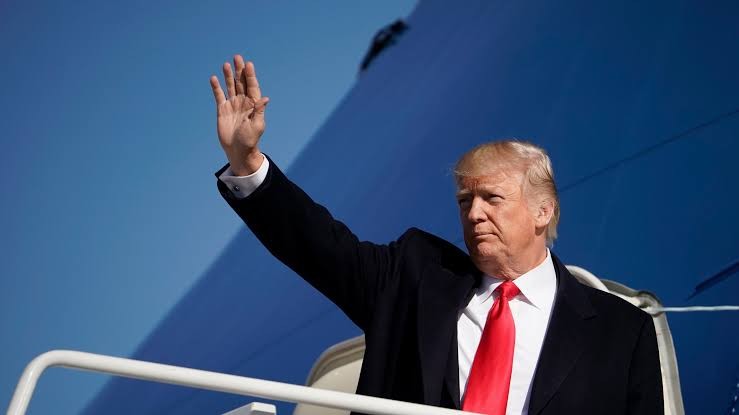The Pariah Post-Presidency
For four years, President Trump bullied his rivals and intimidated his enemies. He commanded the world stage and commandeered social media, spreading torrents of misinformation and falsehoods. From Israel to Iowa, Mr. Trump was inescapable — and seemingly unstoppable.
Since the attack on the U.S. Capitol, his power has been rapidly disappearing, evaporating in a cloud of recriminations and condemnation.
In the final days of his presidency, Mr. Trump has been snubbed by foreign allies and banned from social media. Some members of his cabinet fled, and some in his own party helped deal the final blow of a second impeachment. High-profile friends, like the New England Patriots coach Bill Belichick, are declining national honors to avoid being in his presence. His hometown wants little to do with him.
Mr. Trump arrived in Washington as an insurgent, an unlikely politician who defied the odds to win the White House. He departs isolated and diminished, leaving behind a Capitol transformed into a war zone, a frayed body politic and a fractured Republican Party that has been ousted from power.
Typically, the post-presidential period has offered redemption for even our most polarizing leaders. Out of the political fray, former presidents find new hobbies and missions, often growing in national esteem in the process. Bill Clinton built a global philanthropic empire. George W. Bush discovered his “inner Rembrandt.” And Barack Obama wakeboarded and wrote.
But America has never seen a true pariah post-presidency.
Marooned in the White House, Mr. Trump is facing the lowest job approval of his time in office, polling shows, and increasingly negative reviews for his post-election behavior. He plans to leave Washington hours before President-elect Joe Biden is sworn in, making him the first president since Andrew Johnson in 1869 to skip the inauguration of his successor. (Mr. Johnson was also impeached.)
Instead, he’ll flee to Mar-a-Lago, going full Florida man in a state known to attract those seeking a restart — or an escape.
But Mr. Trump will be hard-pressed to evade the considerable financial challenges facing his resorts and hotels, difficulties exacerbated by a pandemic that devastated the hospitality industry and unlikely to be helped by his fallen personal brand. Adding to his economic stress is the more than $300 million in debt coming due in the next few years that he has personally guaranteed.
His favorite sport has also stepped away, with the P.G.A. Tournament relocating from Mr. Trump’s New Jersey golf club to protect its “brand and reputation,” as P.G.A. of America’s chief executive, Seth Waugh, put it. Mr. Trump was “gutted” by the decision, according to a person close to the White House, as he had worked personally for years to push the tournament executives to hold events at his courses.
Even if Mr. Trump wants to adopt a lower-profile — a decision that’s hard to imagine the media-loving president making — it will be difficult for him to avoid politics.
In the coming weeks, Mr. Trump faces a Senate impeachment trial and the likelihood of continued Democratic-led investigations into his business dealings, presidential decisions and the inner workings of his government. A vocal wing of the party is pushing for prosecutions and a raft of legal challenges against Mr. Trump, his family and his allies.
Though he won more voters than any other Republican presidential candidate in history and maintains the support of a vast majority of G.O.P. voters, a small but growing segment of his party believes the president has become too toxic even for those who elected him.
“I do not think a party centered on President Trump is viable,” said David Asp, a former member of the Republican National Committee from Minnesota. “The party should move away from Trump as quickly as possible, drop the conspiracy theorists and advance a vision for the party focused on the national interest.”
Perhaps the closest historical analogy to the kind of post-presidency that lies ahead for Mr. Trump is that of President Richard Nixon, who left Washington in disgrace to avoid being impeached for his role in the Watergate break-in. (Mr. Trump, for his part, does not care for the comparison, exploding at aides who bring up the ex-president’s name, according to CNN.)
But Mr. Nixon, say those who’ve studied his post-presidential period, felt remorse for his actions, expressing regret that paved the way for the former president to rebuild his reputation as a best-selling author, foreign policy expert and elder statesman.
“Nixon actually felt a sense of responsibility for what had happened,” said Kasey Pipes, the author of a book about Mr. Nixon’s post-presidency. “He felt bad about it and publicly and privately would tell people: ‘I let you down. I let the country down.’”
When Mr. Nixon died in 1994, then-President Bill Clinton praised his “wise counsel,” accomplishments and “devotion to duty,” delivering an eulogy that urged Americans to judge the former president on the “totality” of his life.
“Nixon had come full circle and people had accepted him again,” Mr. Pipes said. “It’s going to be much more difficult for Trump to achieve that level of public acceptance and the main reason is that we haven’t seen any public accountability from him whatsoever.”
He added, “And if we know anything about Trump, I don’t think we will.”
(New York Times)


